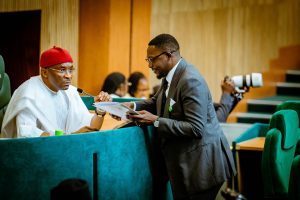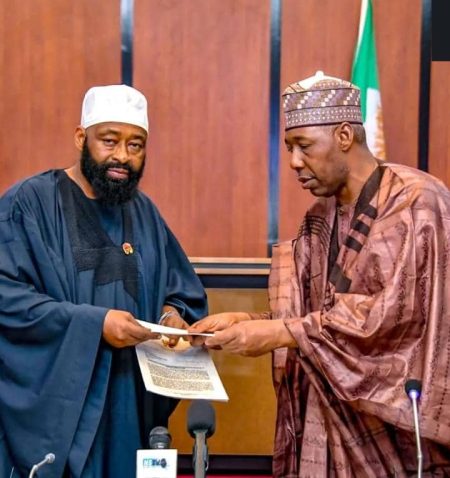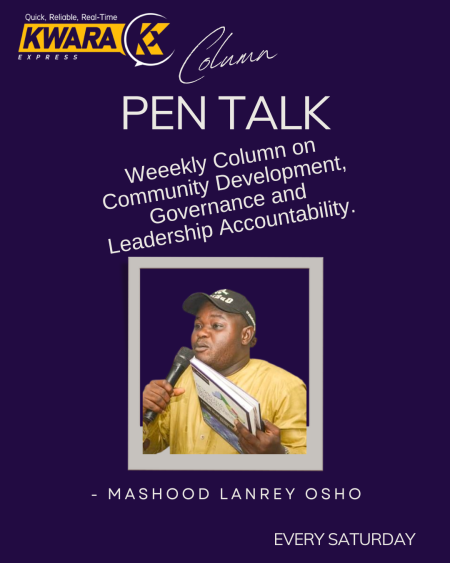By
Abdulbāsit Mahmood Adewole Esq.
In moments of hardship and adversity, it is a fundamental principle in Islam for individuals to turn inward, evaluating their own conduct and assessing the condition of their society. The challenges faced by a nation are often a reflection of the collective behavior of its populace before Allah and towards fellow humans. In Surah Hud, Verse 117:
وَمَا كَانَ رَبُّكَ لِيُهْلِكَ الْقُرَىٰ بِظُلْمٍ وَأَهْلُهَا مُصْلِحُونَ
“And your Lord would never destroy the towns wrongfully, while their people were doers of good.”
In the above verse, Allah informs that he does not destroy any town, except that it has wronged itself (i.e., through the atrocities of its dwellers). Meaning that, no correctional punishment or torment comes to any town, except that its people were wrongdoers. This is as Allah says in Surah Hud, Verse 101:
وَمَا ظَلَمْنَاهُمْ وَلَٰكِن ظَلَمُوا أَنفُسَهُمْ…
“And We did not do them injustice, but they were unjust to themselves..”
The concept that the way people are reflects the way their rulers would be finds support in multiple Islamic sources. For example, there is a Hadith narrated by Abu Huraira, in which the Prophet Muhammad (peace be upon him) was reported to have stated that a ruler would be a reflection of his people. This implies a reciprocal relationship between the leader and the governed, suggesting that the qualities and characteristics of a ruler often mirror those of the society over which they preside.
This idea underscores the profound impact that societal values, norms, and behaviors can have on the selection and conduct of leaders. If a society values justice, honesty, and compassion, it is more likely to have leaders who embody these traits. Conversely, a society that tolerates corruption, oppression, and injustice may find itself governed by rulers who exhibit similar qualities; since these leaders are part and parcel of such society.
From an Islamic perspective, the relationship between the people and their rulers is considered a test of faith and accountability. Both parties are expected to fulfill their respective duties and responsibilities towards one another according to the principles of justice, compassion, and righteousness as outlined in the teachings of Islam. Therefore, the behavior and characteristics of both the people and their rulers are seen as intertwined, each influencing and reflecting the other.
Nigeria, like many other countries, is currently experiencing an atmosphere of hardship and difficulty, where many of its people are experiencing and enduring tough circumstances. Many citizens find themselves in this tough circumstances, resorting to asking for assistance to sustain themselves; more like corporate beggars. Albeit this sad reality, believers in Islamic faith should be mindful of the fact that, whatever troubles are encountered by the creation, Allah always provides a relief with it. The relief does not merely comes after the difficulty; it is provided with it. In Surah Al-Inshirah, Verse 5, Allah states:
فَإِنَّ مَعَ الْعُسْرِ يُسْرًا
“Surely with difficulty is ease.”
Amidst these trying times, it becomes paramount for individuals to uphold their duties and responsibilities with increased diligence, as it is the collective actions of the people that influence the ethos of the nation. The onus fall on the leaders and the citizens to work towards positive change. As a patriotic Nigerian, let the positive change you want to see in others begin with you and not without you. Don’t be like the replica of those who command and/or desire righteousness but forget (to practice it) themselves; as envisaged in Surah Al-Baqara, Verse 44 thus:
أَتَأْمُرُونَ النَّاسَ بِالْبِرِّ وَتَنسَوْنَ أَنفُسَكُمْ وَأَنتُمْ تَتْلُونَ الْكِتَابَ أَفَلَا تَعْقِلُونَ
“What! do you enjoin men to be good and neglect your own souls while you read the Book; have you then no sense?”
Flowing from the above verse, it is correct to state that in Islam, enjoining righteousness and performing righteousness are both required. Neither category is rendered not necessary by the practice of the other, according to the most correct view of the scholars among the Salaf (predecessors) and the Khalaf (successor).
Meanwhile, prayers and hopes for a better Nigeria are essential, but these two must be accompanied by genuine and sincere efforts of Nigerians to bring about that positive change. It is only through a concerted effort of all and sundry, driven by integrity, compassion, and of course, the grace of Allah, that Nigeria can transition to a state of tranquility, security, and prosperity for all its inhabitants. By and large, upholding golden virtues such as integrity, fairness, and altruism, individuals and communities can contribute to creating an environment conducive to the emergence of just and benevolent rulers who govern with wisdom and compassion.
We earnestly seek Allah’s aid in alleviating the hardships faced by the people and in guiding our leaders towards governance based on piety and justice.



![Man is not built to sexually be with one woman’ – 2Face Idibia [VIDEO]](https://kwaraexpress.com/wp-content/uploads/2025/07/IMG_2094-259x300.jpeg)









1 Comment
Jazakumlahu kharan